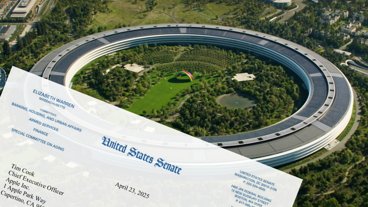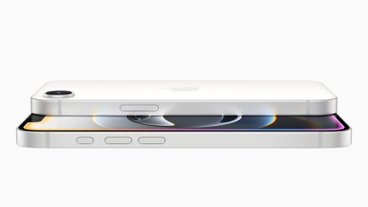Shaw Wu with Kaufman Bros. issued a note to investors Wednesday morning in which he reiterated his belief that a deal between Apple and Verizon is more complicated and costly than most people assume. While he believes such a deal is inevitable, given the carrier's 90 million wireless customers, both Verizon and Apple are very interested in economic and customer control, and are likely to butt heads.
But because Android is positioning itself as an alternative to the iPhone, and is gaining share in the overall smartphone market, Apple may be looking to take on Google's mobile operating system directly by a jump to Verizon. Wu said a Verizon iPhone would most greatly impact Google and the Android platform.
"We would not be surprised if volumes drop dramatically as customers flock to a real iPhone as opposed to a mediocre imitation," Wu wrote. "In our view, web surfing, multimedia, apps and multi-touch remain very strong AAPL hallmarks."
The analyst also said that Verizon would need to give up a lot in order to reach a deal with Apple. For example, the wireless provider would pay Apple double or triple the subsidies it currently pays other smartphone makers. Given that, Wu said it may make more sense for Apple to reach a deal with Sprint or T-Mobile, both of which are far more likely to agree to Apple's terms.
Wu's note came in response to a report from The Wall Street Journal on Monday, which said Apple is working on two new iPhones, including one for the Verizon network. Sources told the paper that CDMA iPhones are not scheduled to go into mass production until September.
In December, Wu stated he believes a "complicated" Verizon iPhone deal is unlikely to happen in 2010. Though Verizon is the top prize in terms of the four major U.S. carriers, Wu said both Verizon and Apple have found success by focusing on "customer control." In that sense, he believes their similarities are what will keep them apart.
As for the other two major wireless carriers in the U.S., a potential jump to T-Mobile could be the simplest choice for Apple. Though the carrier's high-speed 3G connectivity operates on a unique 1700MHz spectrum that is incompatible with the current iPhone, the addition of that frequency to a future hardware model would be much simpler than adding compatibility with Verizon or Sprint's CDMA networks.
Recent rumors have suggested Apple is working on an agreement with chip maker Qualcomm to add CDMA connectivity to a new iPhone in 2010. But both Verizon and Sprint use a technology that, unlike the GSM network of AT&T and T-Mobile, is not widely used abroad.
But Apple executives, in January, made a clear effort to demonstrate they are happy with their partnership with AT&T. The company also attempted to downplay speculation that the iPhone would become available on multiple carriers in the U.S., with Apple's chief operating officer, Tim Cook, stating multi-carrier strategies are not necessarily the best option for every country.
"I don't want to imply that would happen in every market or that we are headed that way in every market," Cook said in the company's quarterly earnings call. He also specifically defended AT&T and said the nation's second-largest wireless carrier is working to alleviate coverage concerns across the country.
 Neil Hughes
Neil Hughes






-m.jpg)






 Wesley Hilliard
Wesley Hilliard
 Christine McKee
Christine McKee
 Malcolm Owen
Malcolm Owen
 William Gallagher
William Gallagher
 Andrew Orr
Andrew Orr






-m.jpg)




81 Comments
Apple may be looking to take on Google's mobile operating system directly by a jump to Verizon.
If this happens it would not be a "jump to Verizon." A jump is when you leave one place and land on another instead. Apple isn't going to discontinue offering iPhones through AT&T.
I've long been skeptical about Apple offering a Verizon CDMA phone in the twilight of that technology. As time continues to run out on it, the option becomes less and less attractive as a business case. However mounting a counter-attack against Android may affect that calculation.
BTW, simply as one data point, put me down as someone who has experienced both very good coverage and excellent customer service from AT&T. But then I don't live in NYC or SFO.
". . . a real iPhone as opposed to a mediocre imitation." Ouch!
Why Verizon? There's T-Mobile and Sprint. Apple could go for them instead.
Why Verizon? There's T-Mobile and Sprint. Apple could go for them instead.
Because Apple might not want to continue giving Google uncontested access to all of Verizon's customers. Apple needs to contain the cylon menace.
Verizon's Customer Control has been to offer me phones that don't meet my needs; so I have to take a basic phone and do with out the extras I really want. Then I have to go into the system setup of the phone and change the settings so I don't accidently activate some function on the phone I don't want to use and then pay excessively for it . I hope they have an iPhone announced before September for Verizon otherwise I'm leaving; as my contract is up then.